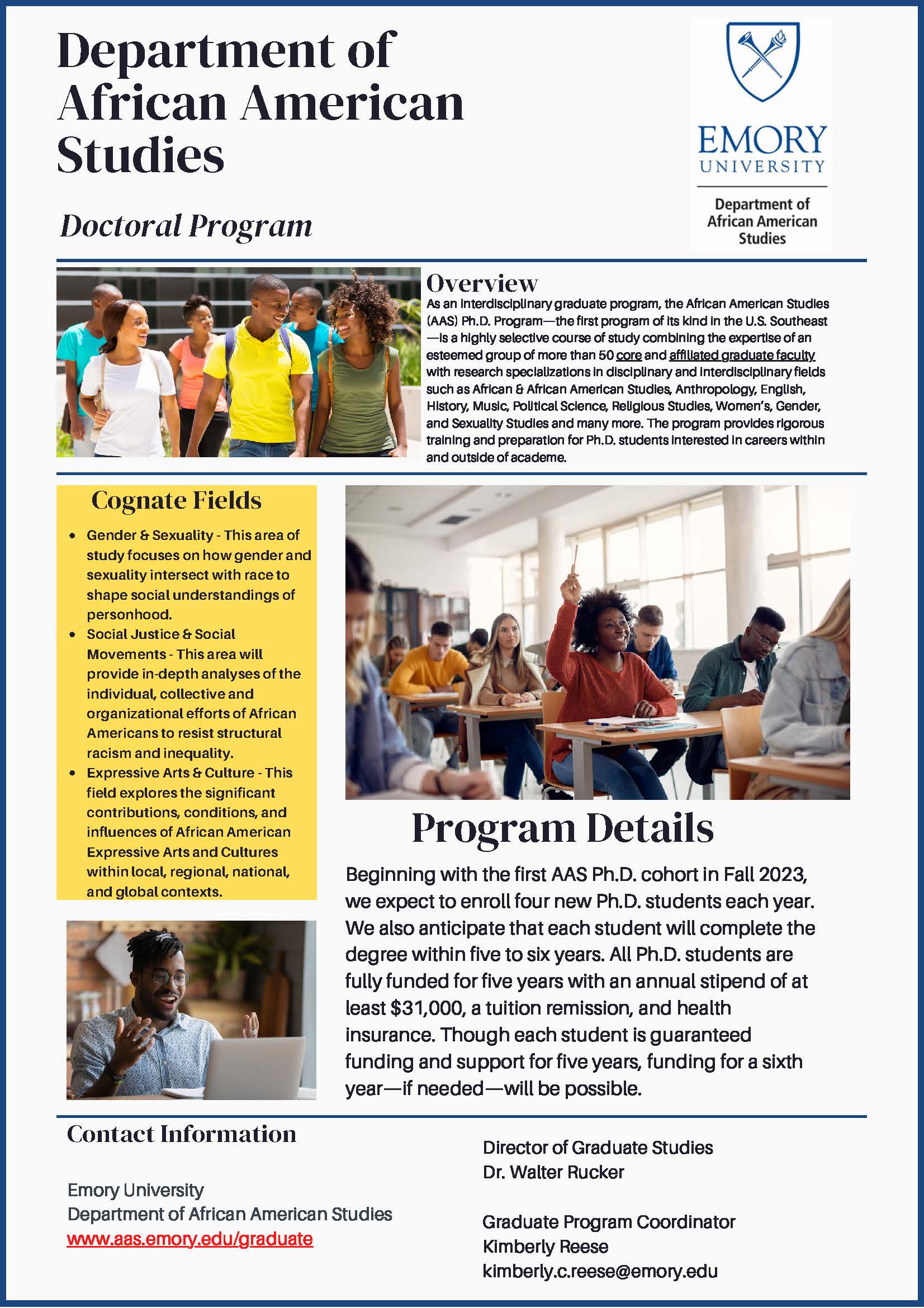Emory has launched a new doctoral program in African American Studies, the first of its kind in the U.S. Southeast. The interdisciplinary program will draw on the expertise of more than 50 scholars across schools at Emory, including from the College’s Department of History. Dr. Walter C. Rucker, Professor of African American Studies and History, will serve as core faculty in the program and as the Director of Graduate Studies. The program will be built around four of the pillars of African American Studies: interdisciplinarity, intersectionality, community engagement, and transnationalism. The first cohort of four doctoral students is expected to begin in the fall of 2023. Read more information about the program on the AAS website, as well as in the following coverage in the press:
- “Emory establishes first African American studies PhD program in the Southeast,” the Emory News Center.
- “Emory University establishes first African American studies PhD in the Southeast,” Decaturish.
- “Emory University Launches 1st African American Studies Ph.D. Program in Southeast U.S.,” the Washington Informer.
- “Emory University Establishes First African American Studies Ph.D. Program At A Private University In The South,” Black Enterprise.
- “Emory University establishes first African American studies PhD in the Southeast,” WABE-FM.
- “Emory University launches African American studies program for PhD students,” TheGrio/Yahoo News.








